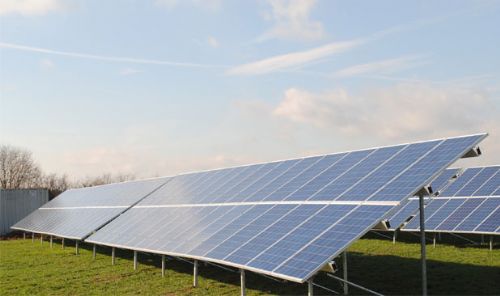
The number of agricultural solar installations has increased recently, according to renewable energy specialists.
"We have seen an increase in the number of agricultural customers as from a farmer’s point of view it makes sense to reduce their energy bills and make the most of the land they have available by installing solar panels" said Sam Tilley, Managing Director of Infinite Energy.
"People often think solar systems need to be implemented on roofs but ground implementations are becoming increasingly popular."
Wicks Manor has been producing pork for over 40 years on the family run pig farm in Essex. They saw the electricity bills continuing to rise and wanted a way to reduce their CO2 emissions.
"Pigs are born and bred at Wicks Manor, they eat wheat and barley grown and milled on the farm. We wanted to find a ’greener’ way to run the operation, renewable systems are the way forward for farmers" said Fergus Howie, Partner of Wicks Manor.
Like many farm owners, they made use of their available land and assembled a ground mounted system. They installed a total of 50kWp using 208 LDK 240w panels with SMA Inverters.
Solar energy remains an excellent investment following the latest round of tariff cuts, which has been emphasised by the NFU.
"The government does appear to be listening to the industry at last", said NFU chief renewables adviser Jonathan Scurlock.
"Now that we have some policy stability in the fast-growing solar power sector, these manageable reductions in tariffs are good news for farmers installing mid-sized PV rooftop schemes.
"The NFU has always believed that farmers and growers would play a significant role in creating a low-carbon economy, and our members can help to restore business confidence at a critical time for the emerging solar PV sector.
"Although the Feed-In Tariffs are set to fall further, the supply chain is delivering very competitively-priced medium-sized systems onto the market this year, which offer especially attractive returns for those farmer and growers using a lot of on-site electricity during the summer, such as intensive livestock producers."
